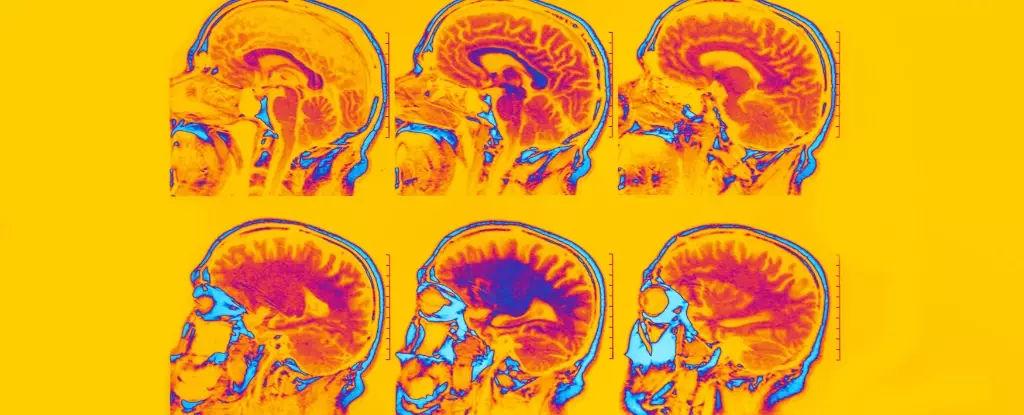In a groundbreaking study conducted by researchers from the US and Australia, six distinct types of brain activity patterns among people with depression and anxiety have been identified. These patterns not only shed light on the symptoms and responses to treatment, but also offer a potential avenue for personalized treatment options. This innovative approach aims to move away from the traditional ‘one-size-fits-all’ diagnostic approach in psychiatry, which often results in trial and error when it comes to treatment options.
The study involved 801 participants diagnosed with various mental health conditions, as well as 137 control participants. Functional MRI (fMRI) brain scans were used to analyze 41 activation and connectivity measures for each participant, focusing on six brain circuits known to play a role in depression. By clustering participants into six distinct types based on their brain pathways, researchers were able to determine which treatment options were more likely to be effective for each group.
Precision Psychiatry: Matching Patients with the Best Therapies
The findings of the study revealed that certain antidepressants were more effective for individuals with specific brain activity patterns. For instance, the antidepressant venlafaxine showed the best results for people whose cognitive brain regions were overactive. On the other hand, talk therapy was found to be more beneficial for individuals with increased activity in brain regions associated with depression and problem-solving. This personalized approach to treatment marks a significant step towards precision psychiatry.
Public health scientist Jun Ma emphasizes the importance of identifying treatments that are most likely to be effective for individual patients and providing them with the appropriate treatment as soon as possible. By leveraging information on brain function, healthcare providers can tailor treatment plans and prescriptions to better suit the needs of each individual. This approach not only enhances treatment efficacy but also reduces the time and resources spent on ineffective treatments.
Recent advancements in brain imaging have opened up new possibilities for the treatment of depression. Researchers have identified a new cognitive biotype of depression, affecting a significant portion of individuals with major depressive disorder. These cognitive deficits, such as attention, memory, and self-control, are often unresponsive to traditional antidepressants that target serotonin. New treatments tailored to this cognitive biotype are currently being explored, offering hope for those who have not responded to conventional treatment options.
Depression is a complex and multifaceted condition, with various factors contributing to its development. The journey towards finding an effective treatment can be daunting for many individuals, making personalized approaches through brain imaging a promising solution. As psychiatrist Leanne Williams aptly puts it, “It’s very frustrating to be in the field of depression and not have a better alternative to this one-size-fits-all approach.” By incorporating brain imaging techniques into the diagnostic and treatment process, we can pave the way for a more effective and personalized approach to managing depression.

Leave a Reply